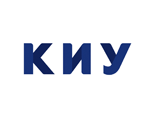Мастер-класс британского преподавателя для казанских преподавателей английского языка
26 февраля в рамках международной образовательной выставки, проводимой компанией ITEC, прошел мастер-класс преподавателя из Великобритании Сэма Джонса, который поделился своим опытом, а также методикой преподавания английского языка на примере подготовки студенческих проектов.
26 февраля в рамках международной образовательной выставки, проводимой компанией ITEC, прошел мастер-класс преподавателя из Великобритании Сэма Джонса, который поделился своим опытом, а также методикой преподавания английского языка на примере подготовки студенческих проектов.
По мнению Сэма, каждый преподаватель перед началом подготовки студенческого проекта, должен задаться вопросом: «Почему и для чего мы это делаем?» Студент должен быть погружен в лингвистический материал, объем которого будет для него воспринимаемым и интересным. Работа должна быть построена по принципу: «Я работаю для того, чтобы увидеть конкретные результаты своей работы». Разработка проектов позволяет студентам максимально расширить свой словарный запас, совершенствовать грамматические, фонетические, письменные навыки, учит работе в команде, где каждый участник несет ответственность за результат всей группы.
Ниже приведены основные цели методики разработки студенческих проектов, освещенных Сэмом Джонсом.
For language learning and teaching to have a chance of being effective:
- The learner should have access to a sufficient quantity of language that is comprehensible and of interest to him/her. Comprehensible means being capable of being understood, although not necessarily immediately.
- The learner should do things and see results. What the learner does is less important than actually doing something.
- Any material used should have some intrinsic value, i.e. it should provide more than just language.
- Language should be explored for its own sake, not everything should be focussed on a strict syllabus.
- Lexis and lexical grammar are very important.
- The teacher should always be in a position to answer the “Why are we doing this?” question.
- Real learning probably occurs as much outside the classroom as in it.
- Writing is a skill to be learned in both mother tongue and in second language.
- Language is only one of many communication skills.
- Communicative acts must have meaning. The message takes precedence over form.
- There is a distinction between skills learning and fact learning. Language learning is a combination of the two, but the skills learning is by far the most important.
- Anybody who wants to learn can do so as long as the teacher doesn’t get in the way.
- What is learned is not always in the hands of the teacher.
- Teachers have to teach in their own way according to their own beliefs. The only rule that applies to all styles of teaching is that the teacher should do nothing to damage the student’s confidence.
 ПРЕД
СЛЕД
ПРЕД
СЛЕД 


 Личный кабинет
Личный кабинет 





